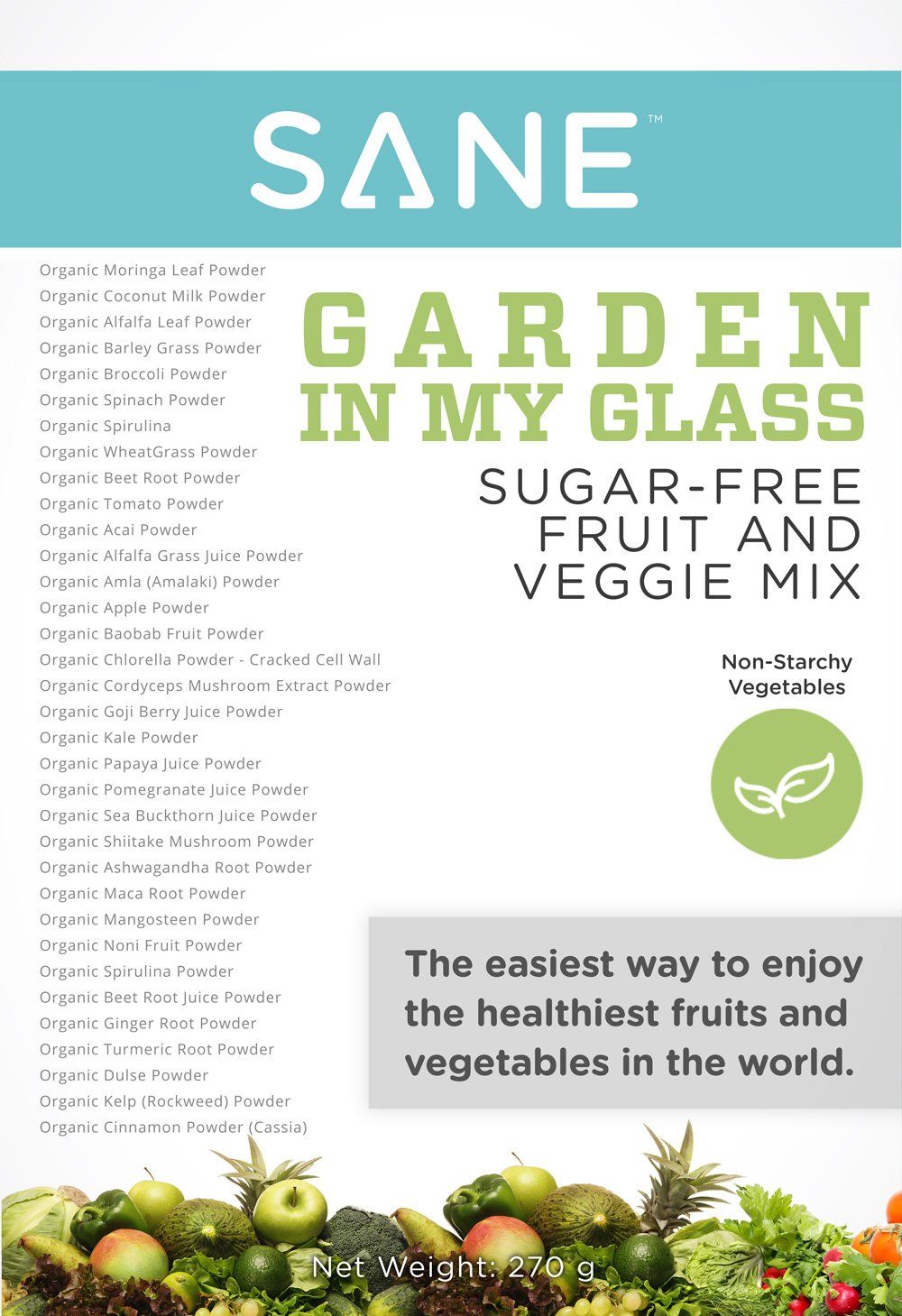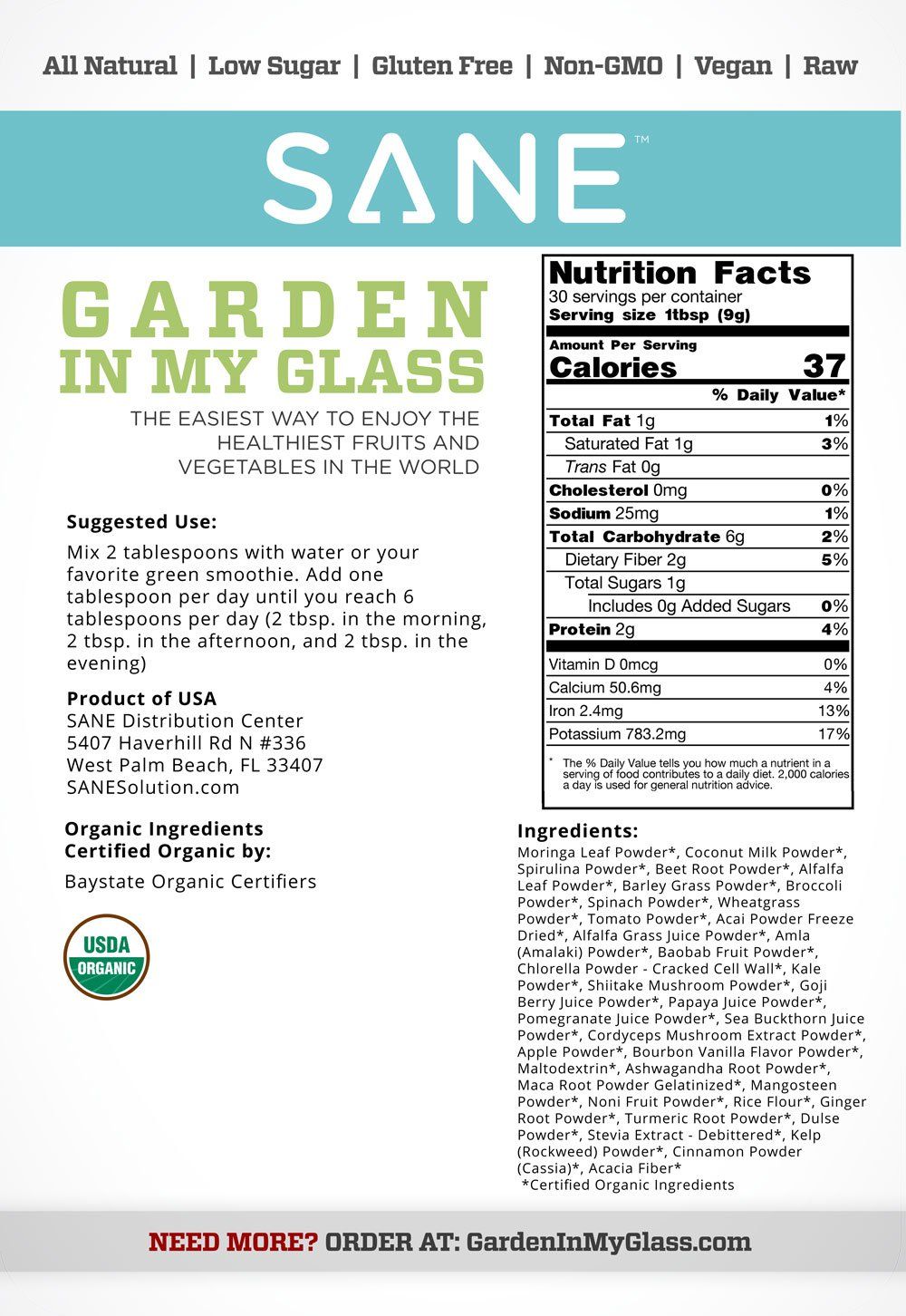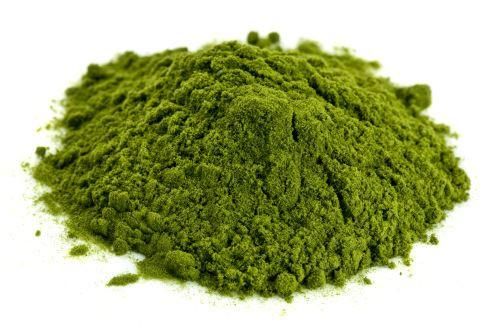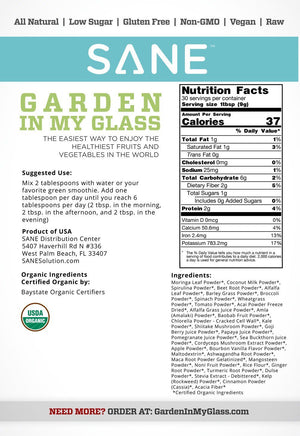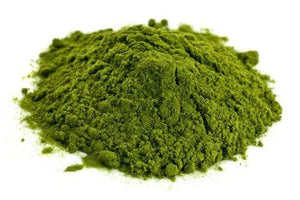Raw organic baobab fruit is highly nutritious and a source of antioxidants, amino acids, vitamins A, B1, B2, B3, B6, C, Magnesium, Calcium, Potassium, Manganese, Zinc, Phosphorus, Iron, protein and dietary fiber (soluble and insoluble).
With an ORAC value of 1,400 per gram, Baobab Fruit Powder exceeds the ORAC values of many other popular super fruits.
Ounce for ounce, baobab fruit contains six times the Vitamin C found in oranges, three times the iron found in spinach, three times the antioxidants found in blueberries, three times the calcium found in milk, and six times the potassium of bananas. Baobab fruit also contains all 8 essential amino acids and is also a source of pectins, triterpenoids beta-sitosterol, beta-amyrin palmitate, alpha-amyrin palmitate, sterols, saponins, triterpenes, and ursolic acids. 100 grams of powder contains 293 mg of calcium, 2.31 mg of potassium, 96-118 mg of phosphorus, and linolenic acid (27 µg of acid per gram of product expressed in dry weight).
Baobab fruit is especially known for its content of Vitamin C; in particular, 100 grams of pulp contain up to 300 mg of vitamin C. Vitamin C has historically been used to combat scurvy, a syndrome occurring in humans whose diet is deficient in fresh fruit and vegetables, and possibly protects against free radicals, because it is the most effective antioxidant in hydrophilic compartments. Additionally, it may support several metabolic processes including collagen biosynthesis in connective tissue and neurotransmitter health. It also may support calcium absorption and iron bioavailability, and it is related to the prevention of many ailments.
Today, dietary fiber has gained increased importance as a component of the diet, for its capability to influence multiple aspects of the digestive tract. Baobab fruit powder is very high in dietary fiber which may be associated with a reduction of the risk of cellular mutation and may support healthy digestion.
The optimal level of dietary fiber consumption has not yet been defined, but it is generally accepted that fiber is fundamental in the composition of a healthy and balanced diet. Consumption of fiber-rich foods also may reduce constipation and weight gain. Baobab fruit pulp powder provides soluble and insoluble fibers, with an amount of about 50 grams/100 grams of powder. The insoluble fibers are not absorbed by the intestine and are useful for relieving constipation and to create a feeling of satiety.
The Baobab fruit pulp shows interesting properties in the stimulation of the intestinal microflora growth. Studies carried out in Research Centers have shown that the hydrosoluble fraction of the fruit pulp has supporting effects on the proliferation of Bifidobacteria. In fact, soluble dietary fibers, like those contained in the pulp (about 25%), are known to have prebiotics effects possibly supporting the growth and/or the metabolic activity of beneficial organisms.
According to the International Centre for Underutilized Crops at the University of Southampton, the baobab is ‘fruit of the future’ because of its amazing nutritional benefits.
Some possible traditional uses of Wildcrafted Raw Organic Baobab Fruit Powder may include:
- Strong anti-oxidant with an ORAC value of 1,400 per gram
- May have antibacterial & antifungal properties
- Source of soluble fibers with prebiotic activity
- Analgesic, antipyretic activity
- May support calcium absorption
- May support the body’s ability to help fend off free radical damage
- A quality source of many micronutrients
- Natural & excipient
- May support the reduction of constipation
- May Support healthy lipid levels
- A source of triterpenoids beta-sitosterol, beta-amyrin palmitate, alpha-amyrin palmitate & ursolic acids
Constituents of Baobab Fruit include:
- Fiber
- Protein
- Vitamin C
- Lipids: Oleic and linoleic unsaturated fatty acids
- Amino Acids: Aspartic Acid, Glutamic Acid, Serine, Histidine, Glycine, Threonine, Arginine, Alanine, Prolamine, Tyrosine, Methionine, Valine, Phenylalanine, Isoleucine, Leucine, Lysine, Cysteine
- Minerals: Iron, Calcium, Phosphorus, Magnesium, Copper, Zinc, Manganese
- Phytochemicals: Carbohydrates, Starch, Alkaloids, Phytic Acids, Saponins, Sterols, Flavonoids, soluble polysaccharides

